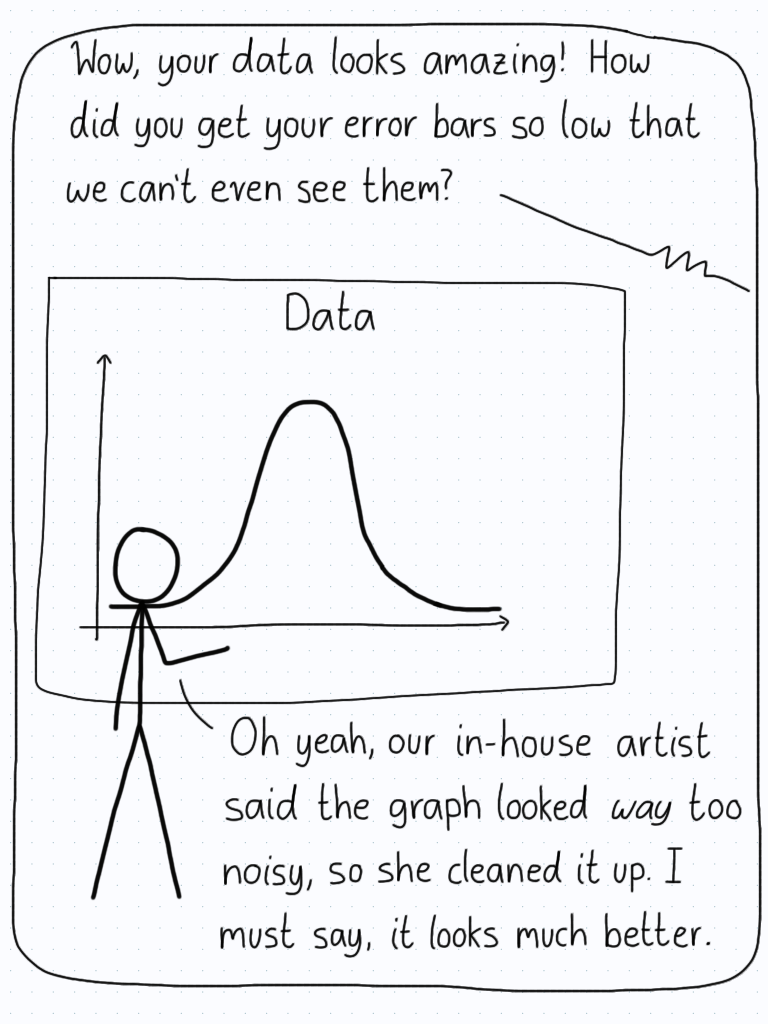 Comics about mathematics, science, and the student life.
Comics about mathematics, science, and the student life.
Historical Introduction

Is this way more confusing? Maybe, but we’re going to forge ahead anyway!
14 Aug 2019Artistic Rendition

Presenting experimental data: the art of making your errors not seem too bad.
12 Aug 2019Teacher Evaluation

In an ideal world, we would all have to go through a drawing course before making diagrams on the board while teaching. It sounds like a small matter, but having a good diagram is crucial to understanding some topics in physics and mathematics.
09 Aug 2019Context

This is part of the reason why you can’t just expect to blaze through a textbook. Understanding all of the terms requires patience.
07 Aug 2019Equal Time

My inability to distinguish between the importance of various assignments really contributed to being much more stressed out than I should have been in school.
05 Aug 2019Membership Perks

You get all the benefits of being in a club, especially the tendency to protect each other when a member is criticized!
02 Aug 2019Information Telephone

The best is when it comes full circle and I get back “noisy” news.
31 Jul 2019Filter

Becoming better in physics means getting used to the fact that you’re only ever approximating reality. That’s the price to use those shiny mathematical tools we know and love.
26 Jul 2019
